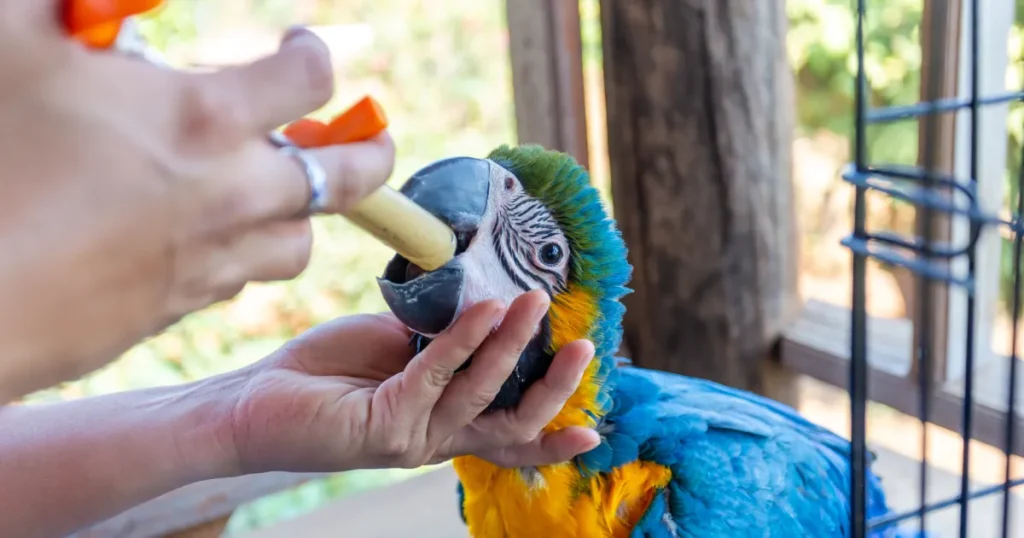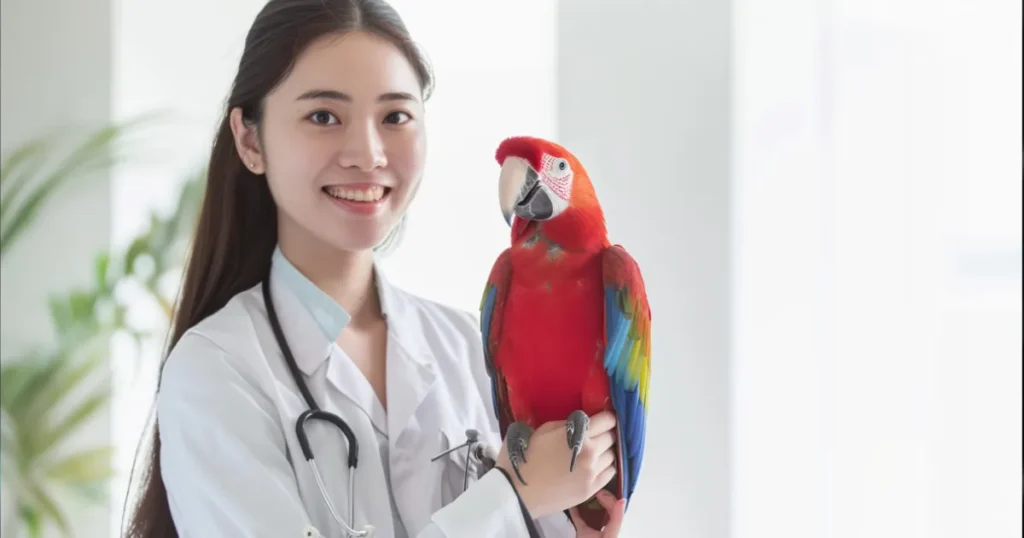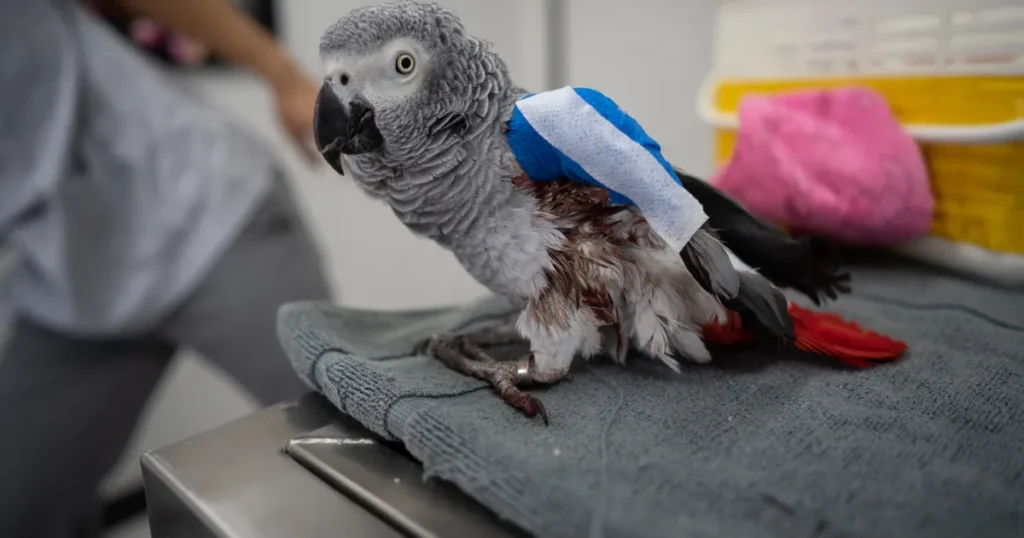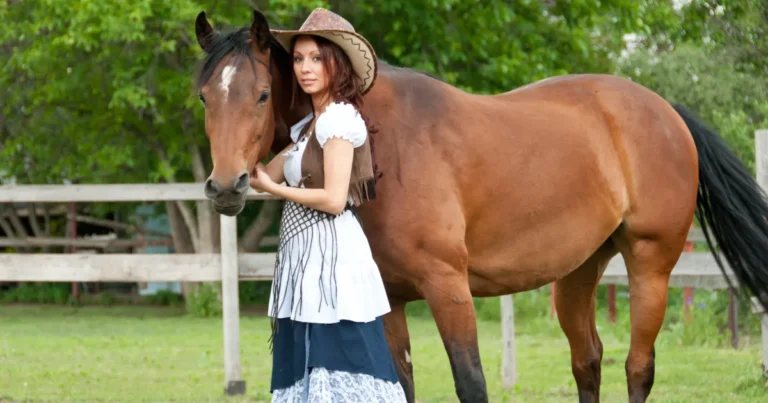Macaws, with their vibrant plumage and charismatic personalities, have captured the hearts of bird enthusiasts across the United States. These magnificent parrots can live for decades—some even reaching 80 years—when properly cared for. However, their longevity depends heavily on proper preventative care and awareness of potential macaws healthcare issues. Understanding and addressing these concerns proactively can make the difference between a thriving companion and one plagued by preventable illnesses.
The complexity of macaws healthcare issues often surprises new owners who may underestimate the specialized care these intelligent birds require. From nutritional needs to environmental factors, macaws healthcare issues encompass a wide range of considerations that directly impact their well-being and lifespan. According to the Association of Avian Veterinarians, many common macaws healthcare issues are preventable with proper education and regular veterinary care.
In this comprehensive guide, we’ll explore seven shocking macaws healthcare issues that every owner should be vigilant about. By understanding these potential problems and their warning signs, you’ll be better equipped to provide optimal care for your feathered companion and avoid the heartbreak of preventable illness. Let’s dive into these critical macaws healthcare issues that could affect your beloved macaw’s health and happiness.
1. Nutritional Deficiencies: The Hidden Threat to Macaw Health

Perhaps the most pervasive yet overlooked macaws healthcare issues involve nutrition. The macaw diet and nutrition requirements are complex and significantly different from what many owners initially provide.
The Seed Diet Danger
According to Dr. Susan Orosz, a renowned avian veterinarian from the University of Tennessee’s Avian and Exotic Animal Hospital, one of the most dangerous macaws healthcare issues stems from all-seed diets. “Seeds are like fast food for birds,” Dr. Orosz explains. “They’re high in fat and deficient in vital nutrients, particularly vitamin A, calcium, and certain amino acids.”
This nutritional imbalance leads to severe macaw vitamin deficiencies that can manifest as:
- Compromised immune function
- Reproductive problems
- Poor feather quality and abnormal molt
- Respiratory susceptibility
- Liver disease
- Skeletal issues
The UC Davis School of Veterinary Medicine reports that nutritional deficiencies rank among the top macaws healthcare issues they treat, with approximately 80% of the serious health problems in companion parrots having a nutritional component.
Creating a Balanced Diet
Addressing these macaws healthcare issues requires a complete dietary overhaul for many birds. A properly balanced macaw diet should include:
- High-quality pelleted food (40-60% of diet)
- Fresh vegetables (30-40% of diet)
- Limited fresh fruits (10-20% of diet)
- Occasional nuts and seeds as treats only (less than 10%)
Particularly important vegetables for preventing macaws healthcare issues include:
- Dark leafy greens (kale, Swiss chard, dandelion greens)
- Orange and yellow vegetables (carrots, sweet potatoes, bell peppers)
- Cruciferous vegetables (broccoli, cauliflower)
Dr. Brian Speer of the Medical Center for Birds emphasizes that transitioning to a healthier diet may take weeks or months and requires patience. “Many macaw health problems stem from nutritional deficiencies that developed over years,” he notes. “The good news is that with proper diet, we can reverse many of these issues before they become life-threatening.”
2. Respiratory Infections: A Common and Dangerous Condition
Macaw respiratory infections represent some of the most acute and potentially fatal macaws healthcare issues that owners face. The avian respiratory system differs significantly from mammals, making birds particularly vulnerable to respiratory pathogens.
Understanding Avian Respiratory Vulnerability
According to research published in the Journal of Avian Medicine and Surgery, birds possess unique air sacs that extend beyond their lungs and even into hollow bones. This efficient oxygen-delivery system becomes a liability when exposed to airborne toxins or pathogens, allowing infections to rapidly spread throughout the body.
The Cornell University College of Veterinary Medicine identifies several environmental factors that contribute to macaw respiratory infections:
- Exposure to cigarette smoke
- Aerosol products (cleaners, perfumes, non-stick cookware fumes)
- Poor ventilation
- Excessive dust
- Mold and mildew
- Sudden temperature changes
Warning Signs of Respiratory Distress
Early recognition of respiratory macaws healthcare issues is critical for successful treatment. Dr. Laurie Hess, author and avian veterinarian, identifies these warning signs:
- Tail bobbing when breathing
- Open-mouth breathing
- Wheezing or clicking sounds
- Nasal discharge
- Voice changes or loss of voice
- Reduced activity or fluffed appearance
- Decreased appetite
“Macaw respiratory infections can progress from subtle symptoms to life-threatening conditions within 24-48 hours,” warns Dr. Hess. “This rapid progression makes these among the most dangerous macaws healthcare issues we encounter.”
Treatment Approaches
Addressing macaw respiratory infections typically requires:
- Immediate veterinary care from an avian specialist
- Diagnostic testing to identify specific pathogens
- Appropriate antibiotic or antifungal medications
- Supportive care including oxygen therapy if needed
- Environmental modifications to remove triggers
- Nutritional support during recovery
The Avian and Exotic Animal Hospital of Atlanta emphasizes that home remedies are ineffective for true respiratory infections and delay critical treatment. “When it comes to macaws healthcare issues affecting the respiratory system, time is of the essence,” they advise. “Respiratory infections rank among the leading causes of preventable deaths in companion macaws.”
3. Psittacine Beak and Feather Disease (PBFD): A Devastating Viral Condition

Among the most dreaded macaws healthcare issues is Psittacine Beak and Feather Disease (PBFD), a highly contagious viral infection that attacks a bird’s immune system and affects feather and beak growth.
Understanding PBFD
The University of California Davis School of Veterinary Medicine describes macaw beak and feather disease as caused by a circovirus that primarily affects young birds but can impact macaws of any age. This virus attacks rapidly dividing cells, particularly those in feather follicles, beak, and immune system.
What makes this one of the most concerning macaws healthcare issues is that PBFD is:
- Highly contagious between birds
- Currently incurable
- Potentially fatal
- Able to remain infectious in the environment for extended periods
Recognizing PBFD Symptoms
According to the Association of Avian Veterinarians, classic signs of macaw beak and feather disease include:
- Abnormal feather development during molt
- Symmetrical feather loss
- Feather color changes or bleeding feathers
- Deformed, cracked, or abnormally growing beak
- Oral lesions
- Lethargy and depression
- Secondary infections due to compromised immunity
Dr. Robert Dahlhausen, a leading researcher on avian virology, notes that early detection is crucial: “Among serious macaws healthcare issues, PBFD is particularly challenging because infected birds can appear healthy while shedding the virus. Regular screening is essential, especially before introducing new birds to an existing collection.”
Prevention Strategies
While there’s no cure for PBFD, preventative measures to avoid this devastating addition to macaws healthcare issuesinclude:
- DNA testing of new birds before purchase or introduction
- Quarantine periods for new birds (minimum 30-60 days)
- Regular health screenings even for apparently healthy birds
- Strict biosecurity measures when handling multiple birds
- Disinfection protocols for shared equipment and environments
The American Association of Zoo Veterinarians recommends that aviaries and multiple-bird households implement regular screening protocols to prevent the spread of this and other infectious macaws healthcare issues.
4. Feather Destructive Behavior: Physical Manifestation of Psychological Distress
One of the most visually apparent macaws healthcare issues is feather plucking or destructive behavior. This condition, while not immediately life-threatening, significantly impacts quality of life and can lead to secondary complications.
Understanding the Complex Causes
The Center for Avian and Exotic Medicine identifies multiple triggers for macaw feather plucking causes, making this one of the more complex macaws healthcare issues to diagnose and treat:
Medical Causes:
- Parasitic infections (internal or external)
- Bacterial or fungal skin infections
- Allergies to environmental factors or food
- Hormonal imbalances
- Nutritional deficiencies
- Pain from internal disease
Psychological Causes:
- Boredom and lack of stimulation
- Social isolation
- Environmental stress
- Change in routine or environment
- Past trauma
- Attention-seeking behavior
Dr. Stephanie Lamb of the Exotic Animal Medicine Service notes: “What makes feather destructive behavior one of the most challenging macaws healthcare issues is its multifactorial nature. A thorough medical workup is essential before assuming psychological causes, as many birds are suffering from an underlying physical condition.”
Recognizing Feather Destructive Patterns
The University of Georgia College of Veterinary Medicine categorizes feather destructive behavior patterns that may indicate different underlying macaws healthcare issues:
- Focused plucking in specific areas often indicates localized pain or irritation
- Symmetrical plucking suggests systemic disease or psychological causes
- Barbering (chewing feather tips) frequently relates to nutritional deficiencies
- Mutilation (breaking skin) requires immediate medical attention
Comprehensive Treatment Approaches
Addressing these macaws healthcare issues requires a multi-modal approach:
- Comprehensive veterinary examination including:
- Complete blood count and chemistry panel
- Radiographs
- Skin and feather biopsies if indicated
- Screening for infectious diseases
- Environmental and behavioral modifications:
- Increased foraging opportunities
- Additional socialization and interaction
- UV light exposure (full spectrum lighting)
- Regular bathing opportunities
- Environmental enrichment with toys, perches, and activities
- Medical interventions when necessary:
- Treatment for identified infections or parasites
- Dietary adjustments for nutritional deficiencies
- Anti-inflammatory medications if indicated
- Hormonal regulation in some cases
The ExoticVet network emphasizes that resolution of feather destructive behavior often requires months of dedicated treatment and may never completely resolve in long-standing cases, making prevention through proper care one of the most important strategies for avoiding these macaws healthcare issues.
5. Bacterial and Fungal Infections: Invisible Threats to Macaw Health
Various bacterial and fungal pathogens represent serious but often overlooked macaws healthcare issues that can affect multiple body systems. Understanding these infections is crucial for early intervention.
Common Bacterial Threats
According to the Avian and Exotic Animal Hospital, several bacteria commonly cause macaw bacterial infections:
- Gram-negative bacteria (Pseudomonas, E. coli, Klebsiella)
- Chlamydia psittaci (causative agent of Psittacosis or “Parrot Fever”)
- Mycobacterium avium (Avian tuberculosis)
Dr. Sharman Hoppes from the Texas A&M College of Veterinary Medicine notes: “Macaw bacterial infections can be particularly dangerous because birds are masters at hiding illness. By the time obvious symptoms appear, the infection has often become systemic, making these among the most insidious macaws healthcare issues.”
Fungal Infections: The Silent Danger
Fungal pathogens represent equally concerning macaws healthcare issues. The Long Island Bird & Exotic Pet Veterinary Clinic identifies these common fungal threats:
- Aspergillosis: Respiratory fungal infection from Aspergillus spores
- Candidiasis: Yeast infection affecting the digestive tract
- Cryptococcosis: Fungal infection that can affect multiple systems
Environmental factors significantly contribute to fungal macaws healthcare issues, particularly:
- High humidity without adequate ventilation
- Contaminated bedding or food
- Improper cage cleaning practices
- Immunosuppression from stress or other illness
Warning Signs and Treatment
The Lafeber Veterinary resource highlights these common symptoms of bacterial and fungal macaws healthcare issues:
Bacterial Infection Signs:
- Lethargy and weakness
- Changes in droppings (color, consistency, frequency)
- Discharge from eyes, nares, or mouth
- Swollen joints or lameness
- Weight loss despite normal appetite
- Feather staining around face or vent
Fungal Infection Signs:
- Respiratory distress or voice changes
- Excessive thirst or urination
- White plaques in mouth (candidiasis)
- Regurgitation or vomiting
- Neurological symptoms in advanced cases
- Chronic, non-responsive illness
Treatment for these macaws healthcare issues typically involves:
- Identification of the specific pathogen through laboratory testing
- Appropriate antimicrobial or antifungal medications
- Supportive care including fluid therapy if needed
- Environmental modifications to eliminate sources
- Nutritional support during recovery
- Extended treatment courses (particularly for fungal infections)
Dr. Susan Clubb, a renowned avian veterinarian, emphasizes the importance of prevention: “The environmental management of your macaw’s habitat is crucial in preventing many bacterial and fungal macaws healthcare issues. Proper cage hygiene, food handling, and air quality management significantly reduce these risks.”
6. Stress-Related Disorders: The Unseen Killer
Chronic stress represents one of the most damaging yet frequently overlooked macaws healthcare issues. These highly intelligent birds are particularly susceptible to stress-related disorders that can manifest physically and behaviorally.
Understanding Macaw Stress Triggers
According to the University of California Davis Companion Avian and Exotic Pet Service, common triggers for macaw stress symptoms include:
- Changes in environment or routine
- Introduction of new pets or family members
- Inadequate cage size or improper setup
- Lack of mental stimulation
- Excessive noise or activity
- Limited social interaction
- Inappropriate handling
- Proximity to natural predators (even through windows)
Dr. Brian Speer, noted avian veterinarian and author, explains: “Macaws evolved as highly social flock animals with specific environmental needs. In captivity, when these needs aren’t met, they experience chronic stress that manifests as various physical macaws healthcare issues that can be difficult to diagnose.”
Recognizing Stress Indicators
The Avian Welfare Coalition identifies these common macaw stress symptoms that owners should monitor:
Behavioral Signs:
- Increased aggression or fear responses
- Repetitive movements (pacing, swinging, head bobbing)
- Excessive vocalization or unusual quietness
- Sudden fearfulness of familiar people or objects
- Sleep disturbances
- Self-destructive behaviors
Physical Manifestations:
- Compromised immune function leading to frequent illness
- Digestive disturbances (diarrhea, reduced appetite)
- Weight loss
- Reproductive disorders
- Feather picking or self-mutilation
- Stereotypic behaviors
Stress Reduction Strategies
Addressing stress-related macaws healthcare issues requires a comprehensive approach:
- Environmental Enrichment:
- Providing appropriate cage size (minimum 36″W x 24″D x 48″H for smaller macaws)
- Offering a variety of perches, toys, and foraging opportunities
- Creating safe “retreat” spaces within the cage
- Establishing consistent daily routines
- Social Needs:
- Ensuring daily interaction with human flock members
- Considering bird companions when appropriate
- Respecting the bird’s preferences for handling and interaction
- Behavioral Support:
- Training using positive reinforcement techniques
- Providing appropriate outlets for natural behaviors
- Avoiding punishment-based training methods
- Professional Intervention:
- Consulting with avian behaviorists for severe cases
- Considering medical intervention when necessary
The World Parrot Trust emphasizes that preventing stress-related macaws healthcare issues requires understanding macaw psychology: “These birds have the emotional complexity of a 3-5 year old child combined with powerful natural instincts. Meeting their psychological needs is just as important as meeting their physical ones in preventing many common macaws healthcare issues.”
7. Parasitic Infestations: External and Internal Threats

Parasites represent a category of macaws healthcare issues that affect birds both internally and externally, often causing significant discomfort and secondary health complications if left untreated.
External Parasites: More Than Just Discomfort
The Exotic Animal Hospital of Orlando identifies several external parasites that contribute to macaws healthcare issues:
- Mites: Microscopic parasites that cause intense irritation, particularly:
- Red mites (nocturnal feeders)
- Knemidokoptes (scaly face/leg mites)
- Air sac mites (affecting the respiratory system)
- Lice: Species-specific parasites that live on feathers and skin
- Ticks: Less common but possible in outdoor aviaries or recently imported birds
Dr. Laurie Hess, Director of the Veterinary Center for Birds & Exotics, notes: “External parasites can be particularly distressing macaws healthcare issues because they cause constant irritation leading to self-trauma, stress, and secondary infections.”
Internal Parasites: Hidden Dangers
Internal parasites represent equally concerning macaws healthcare issues. The Avian and Exotic Animal Clinic of Indiana highlights these common threats:
- Giardia: Protozoal parasite affecting the digestive tract
- Roundworms: Intestinal parasites causing digestive issues
- Tapeworms: Less common but possible in birds with exposure to intermediate hosts
- Coccidia: Microscopic parasites causing intestinal inflammation
Effective Parasite Management
The Avian and Exotic Animal Medical Center recommends these approaches for macaw parasite treatment:
- Routine Screening:
- Regular fecal examinations (2-4 times yearly)
- Physical examinations with particular attention to skin and feathers
- Proactive testing when introducing new birds
- Environmental Management:
- Regular and thorough cage cleaning
- Appropriate disinfection protocols
- Quarantine procedures for new birds
- Control of potential intermediate hosts
- Treatment Approaches:
- Specific anti-parasitic medications based on identified parasites
- Environmental treatment to break life cycles
- Supportive care for debilitated birds
- Follow-up testing to confirm elimination
Dr. Gregory Burkett, an avian veterinary specialist, emphasizes the importance of prevention: “Many parasitic macaws healthcare issues are preventable through proper hygiene and regular screening. Unfortunately, by the time symptoms are obvious, the infestation is often advanced and may have caused secondary health problems.”
Prevention: The Key to Avoiding Macaw Healthcare Issues
While understanding these seven shocking macaws healthcare issues is crucial, prevention remains the most effective strategy for maintaining your bird’s health and longevity.
Essential Preventative Care
The Association of Avian Veterinarians recommends these preventative measures to avoid macaws healthcare issues:
- Regular Avian Veterinary Care:
- Annual wellness examinations
- Baseline laboratory testing
- Proactive screening for common diseases
- Immediate attention to any behavioral or physical changes
- Optimal Nutrition:
- High-quality pelleted diet as the foundation
- Fresh vegetables and limited fruits daily
- Appropriate supplementation when indicated
- Clean, fresh water always available
- Environmental Management:
- Appropriate cage size and setup
- Regular cleaning and disinfection
- Attention to air quality and ventilation
- Removal of potential toxins (non-stick cookware, aerosols, etc.)
- Mental and Social Stimulation:
- Daily interaction and handling
- Foraging opportunities
- Regular toy rotation
- Training using positive reinforcement
- Early Intervention:
- Learning normal behavior and appearance
- Regular weight monitoring
- Immediate veterinary care for concerning symptoms
- Establishing a relationship with an avian veterinarian before emergencies
Finding Qualified Veterinary Care
Perhaps the most important factor in preventing serious macaws healthcare issues is establishing a relationship with a qualified avian veterinarian. The Association of Avian Veterinarians and American Board of Veterinary Practitionersmaintain directories of certified avian specialists.
Dr. Todd Driggers of the Arizona Exotic Animal Hospital advises: “The single most important step macaw owners can take to prevent serious macaws healthcare issues is finding a qualified avian veterinarian before problems arise. These specialized birds require specialized care from professionals with specific training in avian medicine.”
Conclusion: A Commitment to Macaw Health
Understanding and addressing these seven shocking macaws healthcare issues requires dedication, education, and partnerships with qualified veterinary professionals. The remarkable longevity potential of macaws—with many species capable of living 50-80 years—means that proper healthcare is truly a lifetime commitment.
By recognizing the warning signs of common macaws healthcare issues and implementing preventative strategies, you can significantly increase the likelihood that your magnificent macaw will enjoy a long, healthy life as your companion. The investment in proper nutrition, environmental management, and regular veterinary care pays dividends in reduced medical emergencies and a thriving, vibrant bird.
Remember that many of the most serious macaws healthcare issues develop gradually, with subtle changes that attentive owners can detect early. Creating a baseline understanding of your bird’s normal behavior, weight, appearance, and droppings provides the foundation for early intervention when changes occur.
Your macaw depends entirely on you for their wellbeing. By staying informed about potential macaws healthcare issues and maintaining a proactive approach to their care, you honor the responsibility that comes with sharing your life with one of nature’s most magnificent and intelligent birds.
FAQs About Macaw Healthcare Issues
Q: How often should my macaw see an avian veterinarian?
A: According to the Association of Avian Veterinarians, healthy adult macaws should have wellness examinations at least annually, with semi-annual visits recommended for birds over 10 years of age. These regular check-ups help detect early signs of macaws healthcare issues before they become serious or life-threatening. New birds should have an initial examination within 48 hours of acquisition to establish a health baseline and identify any immediate concerns.
Q: What are the signs that my macaw needs emergency veterinary care?
A: The Avian and Exotic Animal Hospital identifies these signs requiring immediate attention for potential serious macaws healthcare issues:
- Difficulty breathing or open-mouth breathing
- Inability to perch or balance
- Bleeding that doesn’t stop within a few minutes
- Suspected fractures or trauma
- Prolapsed cloaca or egg binding
- Seizures or neurological symptoms
- Complete cessation of eating or drinking for 24+ hours
- Significant and sudden behavior changes
Q: Can macaws catch diseases from humans or other pets?
A: According to the Cornell University College of Veterinary Medicine, while most pathogens are species-specific, some macaws healthcare issues can be transmitted between species. Macaws can potentially contract certain bacterial infections from humans, particularly respiratory pathogens. They can also be affected by some avian pathogens carried by other birds, including pet birds and wild birds. Good hygiene practices, including handwashing before and after handling your macaw, help minimize these risks.
Q: How can I tell if my macaw’s diet is nutritionally complete?
A: The UC Davis School of Veterinary Medicine suggests several indicators of proper nutrition that help prevent macaws healthcare issues:
- Bright, vibrant feathers with proper pigmentation
- Successful, complete molts without retained feathers
- Appropriate weight for species and frame size
- Normal droppings with well-formed feces
- Proper beak and nail growth
- Energy and activity levels appropriate for age Laboratory testing during annual examinations can also detect subclinical nutritional deficiencies before they cause obvious symptoms.
Q: How can I safely introduce a new macaw to my existing bird?
A: The Avian Welfare Coalition recommends these steps to prevent macaws healthcare issues related to introducing birds:
- Complete veterinary quarantine (minimum 30-60 days) with testing for common diseases
- Gradual introduction with separate cages in the same room
- Supervised interaction in neutral territory
- Close monitoring for stress or aggressive behaviors
- Separate food dishes to prevent resource guarding
- Patience—the process may take weeks or months for full integration This careful approach helps prevent stress-related macaws healthcare issues and potential disease transmission between birds.





Leave a Comment